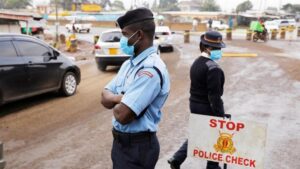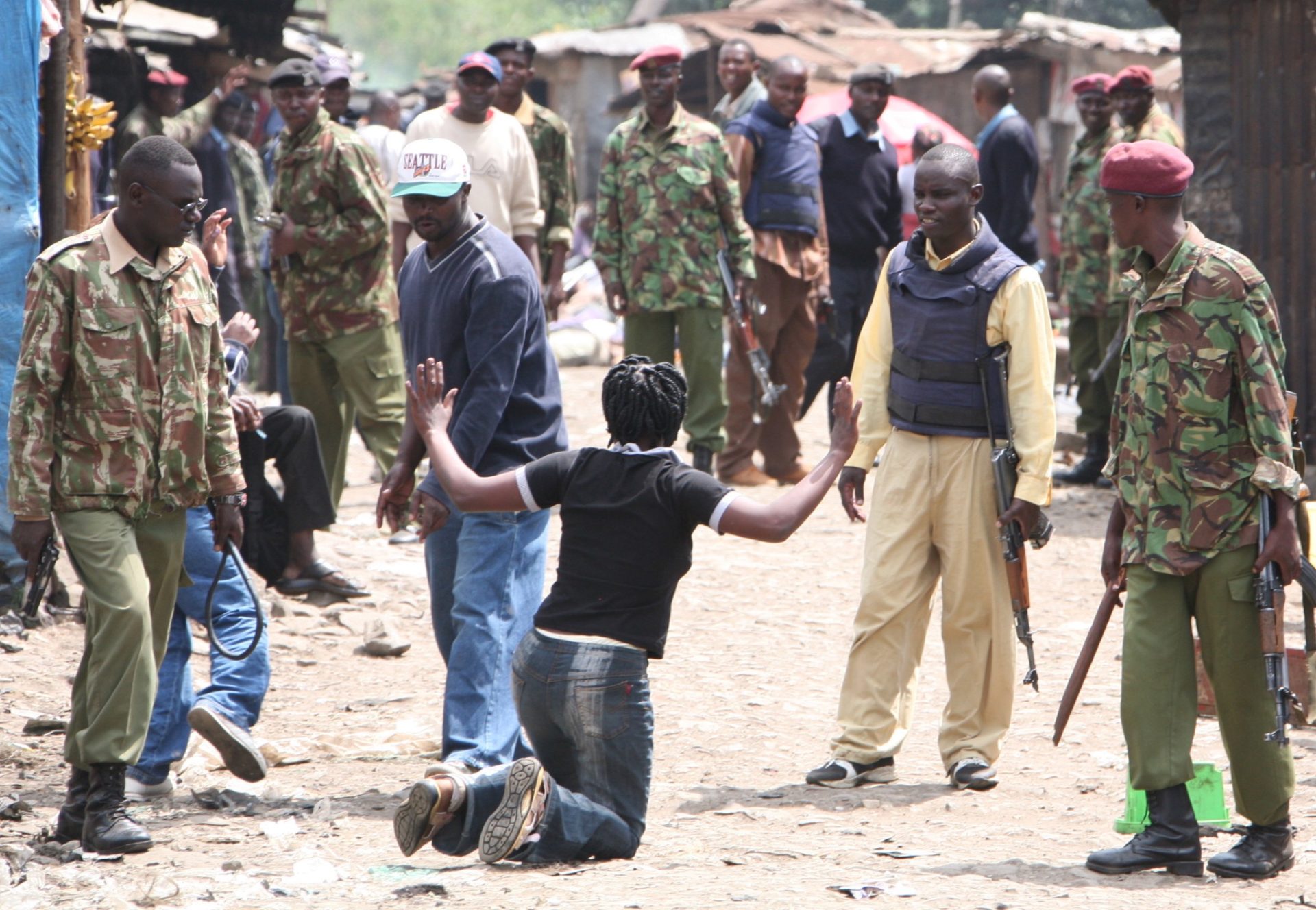
April 10 marked two weeks since Kenya’s COVID-19 curfew began, and so far the police have already killed more people than the illness.
The youngest victim, a 13-year-old boy, was shot dead while watching the police enforce the curfew from the balcony of his own family home in the Mathare informal settlement of Nairobi.
On the first night of curfew, social media in Kenya was full of videos of police officers using tear gas on ferry passengers, beating traders at market places, harassing drivers, and generally menacing the public in the name of public order.
When challenged, the Cabinet Secretary for Health Mutahi Kagwe equivocated on condemning the police action, and instead urged civilians to “make it difficult if not impossible for the police to come into contact with you”.
Regardless of the nature of the threat and its significance, it seems that Kenya’s government has already resorted to the most unsophisticated tool in its arsenal – police violence.
Policing and public order are going to be significant secondary risks to the public created by the COVID-19 pandemic. Kenya is one example, but across the developing world – in India, Uganda, South Africa, Egypt and many other countries – states have collapsed to arbitrary violence against civilians under the guise of enforcing curfews and stay-at-home orders.
Yet, consent is crucial to fostering compliance with open-ended and strict physical distancing measures. Much like the racist policing of the past, violence may deliver short-term compliance but it cannot hold once the public realises that they vastly outnumber the police. What will we do with the people if they do not understand why they must stay home?
One remarkable feature of the politics of this novel coronavirus is how starkly it seems to exacerbate whatever structural inequalities it finds in the society it enters. In Kenya, police violence has been a constant feature of public life, particularly in informal settlements, where young men especially are targets.
According to media reports, between October 2018 and September 2019, the Kenyan police killed 189 people. The average age of those killed was 28, and in 75 percent of these cases, the police allege that the victims were criminals and thugs, even where there is compelling evidence to the contrary. And as most of the victims were in informal settlements and away from the middle-and-upper-class gaze, the crime narrative is rarely challenged.
This first week of curfew therefore already has individuals in informal settlements on edge, not least because of the loss of income due to the lockdown. Residents are also worried that public order measures will lead to even more arbitrary police violence, particularly against a population that is facing the choice between death by illness and death by starvation.
Like many other countries, Kenya has given the police force heightened public order powers to implement restrictions for the management of COVID-19. These rules are contained in the Public Order Act and give police unprecedented powers of detention, arrest and fining. But aside from these formal systems, the police have also been filmed using arbitrary corporal punishment and tear gas without any perceptible threat, which is of course illegal.
Historically, public order restrictions are applied wherever there is a threat to state security, like during an attempted coup in 1982 or where there is a threat of an insurgency as in the Mount Elgon region. This is the first time that the laws have been invoked to manage a public health crisis, but the government does not seem to have internally unpacked the qualitative difference between suppressing a rebellion and reducing the risk of an outbreak because the pattern of behaviour is exactly the same.
Aside from the clear ethical issues with abusing police power in this way, the risk is that if these extreme policing measures are applied without due caution and consideration, they will eventually be resisted. Experts warn that because so many countries failed to act decisively in the early days of the coronavirus outbreak, these lockdowns and curfews might be with us for a long time.
Widespread rejection of containment measures could lead to wholesale social and economic collapse in countries that certainly do not have the public health capacity to deal with a widespread outbreak of a highly infectious disease. We need the public to comply and modify their behaviour, whether or not “Big Brother” is watching.
Policing in many parts of the world is already broken, and much like other urgent questions about governance and public priorities, COVID-19 is a key moment for many countries to reflect on what the purpose of the practice is. Ideally, the police should be the last line of defence against a virus.
The objective of the movement restrictions in place around the world is for people to modify their behaviour quickly, and to stop situations that heighten the risk of contracting COVID-19. The public is not the enemy here – the virus is, and we need informed consent to get the kind of wholesale compliance that can turn the situation around.
Using the police as a substitute for effective public health communication and awareness not only makes this work more difficult, it undermines it completely.
This article was written By Nanjala Nyabola, first published by Al Jazeera.






















